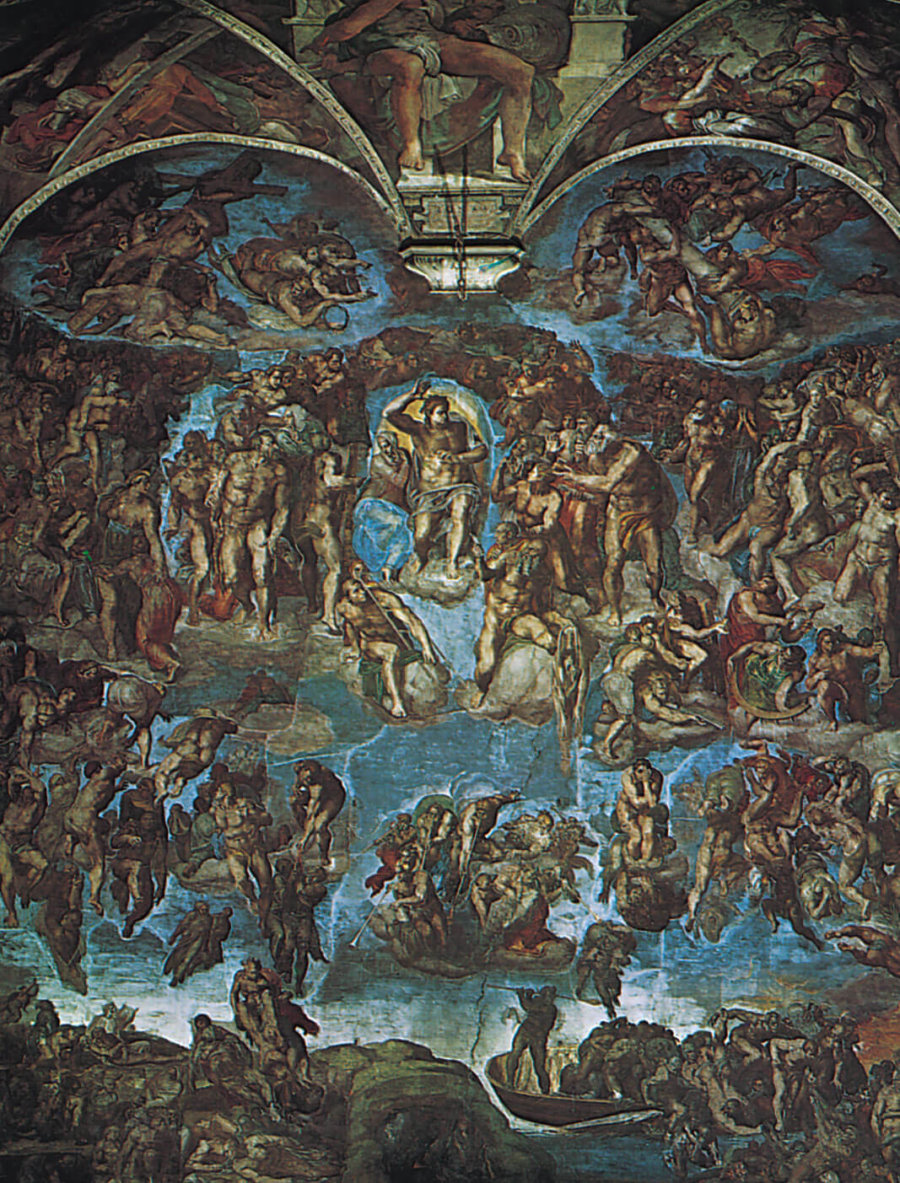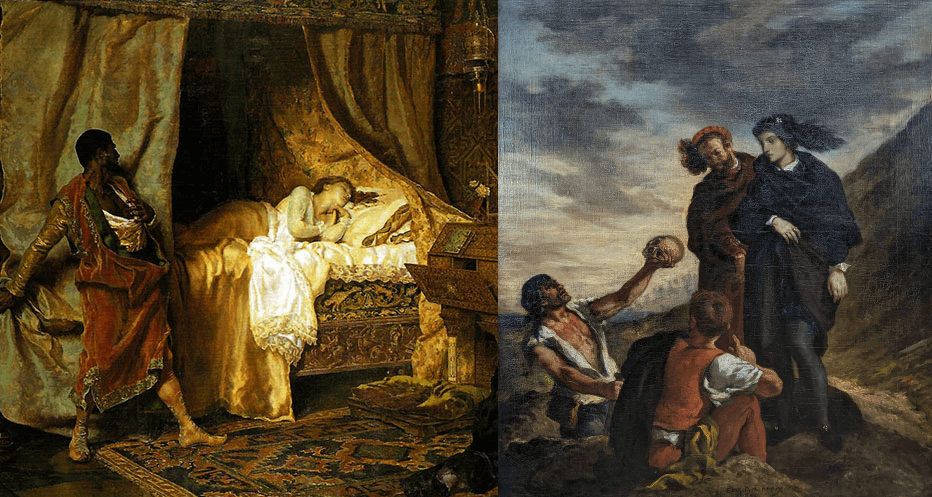Christianity and Globalism

Human culture owes its existence to the shedding of innocent blood. However, Christianity reveals the scapegoat mechanism. The supporters of Jesus defied the majority and vocally protested Jesus’ innocence, pointing out the “thyein” aspect of his murder/sacrifice. Normally, the point of view of the victim is absent because with the death of the victim, only the voice of the crowd remains. The courage to support the victim is usually missing both because of the fear of sharing the victim’s fate and because of the tendency to imitate other people and for a person to imagine that he is wrong when faced with unanimous opinions that contradict his own.
The perennial philosophy points to the real sacred that is unrelated to the false sacred. The real sacred is the Great Chain of Being and is discovered by mystics who communicate their findings to the rest of us. Plato was a real mystic, as was Jesus. Hinduism and Buddhism have provided similar insights in the East and Sufis in the Middle East. But, though these other religions support the perennial philosophy, they show no particular awareness of the scapegoat mechanism which will compromise their adherents’ ability to “love your neighbor as yourself.”
– Richard Cocks’ “Globalism, Don Juan, and the Perennial Philosophy”
Richard Cocks has performed admirable service by providing us with an exposition of perennialism, contextualized by the writings of Rene Girard. I was introduced to Girard by my college literature professor, David Casillo at the University of Miami, who was almost as brilliant as his intellectual mentor. He also exhibited a brilliant stylistic form in his lectures, a gift that was lost on most of his slightly above average party school students.
I remember a conversation after I had decided to go on to seminary regarding Genesis 1, which he described as a “cosmogonic myth.” I hesitatingly agreed but was not too sure why, only to realize later that so too are liberalism, evolutionism, progressivism and just about everything else under the sun. So which myth is “true” in the Voegelinian sense of most fully representing existential reality? That’s how I could have responded then but did not. Today, I would respond differently, I should think. But back to the classroom for a moment.
It seemed as though every major literary work we studied contained a Girardian revelation or two, hidden meanings that you would have missed had you not been aware of the psychology and sociology of mimetic sacrifice. But his soft-headed students were perhaps not so weak minded as you might think. It got to the point where, as a class, we almost let out a collective groan or snicker every time Girard’s name was inserted into the text, or his theory of sacrifice, or something or other to do with carnivals as symbolic of something or other. Frankly, after a while, it became so repetitive that it reeked to me of a kind of fundamentalism, a symbolism so pervasive that it became literalism. See, look here, this is literally what this means!
While I never made it a point to delve much further into Girard himself, it struck me that the guy, much like the writer of the wildly popular vampire novels, was simply a self-suppressed believer who was looking for some great and profound reason to finally take the plunge into Catholic Christianity, which they both did. It turned out that Anne Rice’s highly publicized conversion could not withstand her politicized and eroticized notions of feminism. Regarding Girard’s conversion, let’s just trust that it is still a work in progress (which, according to Catholic Theology, it inevitably is).
The Perennialist Philosophy mischaracterizes Christianity as a subset in the mystical quest for “The Great Chain of Being,” and therefore is incapable of understanding it, much as the ancient pagans mischaracterized Christians as cannibals for eating the flesh of Jesus Christ. And while Girard seems to place Christianity at the pinnacle of world religions by proclaiming that the sacrifice of Christ becomes the last sacrifice because of its perfection, the question we are left with is the problem of salvation, which a perfect sacrifice alone cannot account for.
Christ’s Atonement for our sins, the sins of believers as well as of all mankind’s, is not salvation. It’s what, among many things, makes salvation possible. To reduce Christ and Christianity to sacrifice, or to say that Christ overcomes “the scapegoat mechanism,” is to commit the reductionist fallacy. As sophisticated and intellectually astute as perennialists are, they would likely deny this point and in turn point to many other admirable things about Christianity that also “support” the perennialist philosophy. But it’s hard for me to find an equivalence of experience or an equivalence of meaning with eating and drinking the body and blood of God in order to be deified.
Even so, we are still left with the underlying contradiction in perennialism: every religion that it claims supports perennialism rejects perennialism. And from his Olympian perch the perennialist can say, well, of course, that’s as it should be, because of the necessary particularism of religion and culture. But what all of these religions do not realize is the overarching universalism of the “Great Chain of Being,” of which they are each a particularized expression. And we, like Plato, do not intend to mess too much with their folk religion because it might cause them to lose faith, but the fact remains that our philosophy is all big picture stuff.
Some of the early Church Fathers who were educated in the Platonic Academy–St. Justin Martyr for example–recognized Christianity not as equivalent to but as “the perfection of philosophy.” Others, such as St. Gregory Palamas, in his Triads, which is written as a polemic against Barlaam and his analogia entis, rejects philosophy outright as nothing but pagan mythology. This despite the fact that he relies heavily on St. Dionsysios the Areopagite who in turn relies almost exclusively on Platonic and Aristotelian categories in his chapter on “Good and Evil” in The Divine Names.
So one might conclude that the relationship between Christian believers and philosophy is an ambiguous one. On the other hand, it may be that Christianity is the death of philosophy, and the fear that that might potentially be so causes many a good philosophical mind to hold Christ at arm’s length.
There is no “Archimedian point” from which Christianity can be examined, be it historically, culturally, psychologically, philosophically, religiously or personally, let alone be understood. The “Great Chain of Being”–which is an intellectual abstraction–will simply not get you there, nor the analogia entis, which is at least a real philosophical experience.
The Didache—the earliest extant Christian catechetical document–does not mention the term Christianity. At that time, we were mostly called “people of the way.” Here is the first line:
There are two ways: one of life and one of death; and the difference between the two ways is great.
Four chapters are devoted to the way of death. Four chapters are devoted specifically to the way of life, followed by chapters on what Christians do as a community, concluding with an Apocalypse.
Theology develops over time by men and women of deep prayer and ascetical effort to further explicate the two ways, both for the purpose of condemning certain heresies that follow the way of death, but also to form us concerning the way of life. Christian Theology is not about the acquisition of meaning or a higher understanding. It is about life and death, blessings and curses. Preaching serves the purpose of making us aware of just how much we are currently on the death track, bringing curses down upon ourselves and the world, and what we need to do to reverse course, that we may live and become a blessing to the world, but not in the conventional sense of making the world better.
Very few of us these days calling ourselves Christians come close to the ideals laid out in our first catechism. This is not due to a lack of effort, but rather because we seem to have lost our way, thereby confirming the words in the Apocalypse of The Didache. As St. John Chrysostom could already say in the 5th Century,
There would be no need for sermons if our lives were shining; there would be no need for words if we bore witness with our deeds; there would be no more pagans if we were true Christians.
Today, in addition to pagans, we could insert ideologues, propagandists and experts, critical theorists, self-help gurus, media and political fear-mongers, oligarchs and those who generally think they know better.




